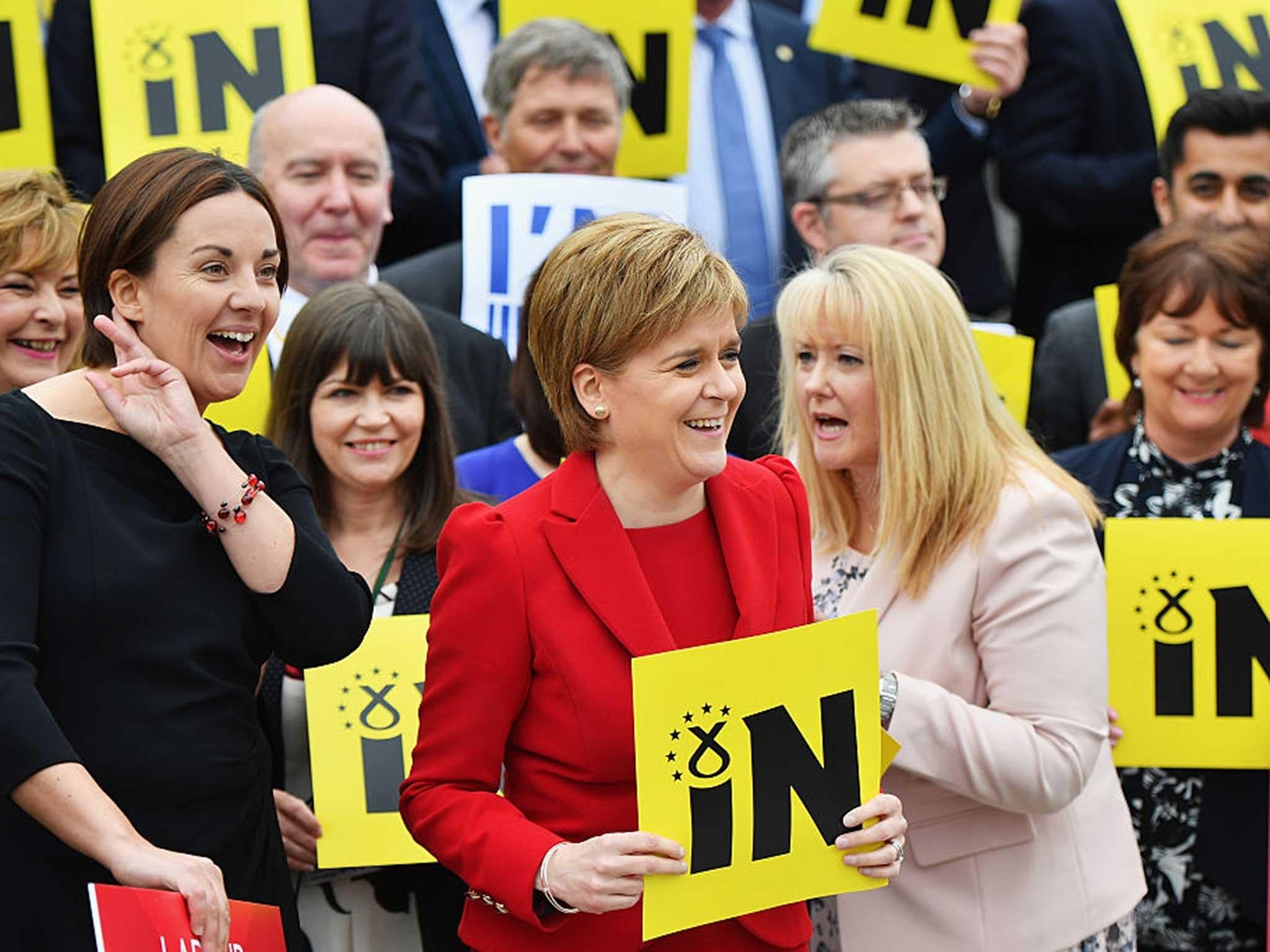Scottish voters have spoken out against Brexit - and even without independence they could rejoin the EU
Denmark is a union of three countries, only one of which - the place you think of as Denmark - is a member of the European Union. This means that the possibility of Scotland staying, even without independence, is real

Your support helps us to tell the story
From reproductive rights to climate change to Big Tech, The Independent is on the ground when the story is developing. Whether it's investigating the financials of Elon Musk's pro-Trump PAC or producing our latest documentary, 'The A Word', which shines a light on the American women fighting for reproductive rights, we know how important it is to parse out the facts from the messaging.
At such a critical moment in US history, we need reporters on the ground. Your donation allows us to keep sending journalists to speak to both sides of the story.
The Independent is trusted by Americans across the entire political spectrum. And unlike many other quality news outlets, we choose not to lock Americans out of our reporting and analysis with paywalls. We believe quality journalism should be available to everyone, paid for by those who can afford it.
Your support makes all the difference.The consequences of Brexit, so far, have been exactly as predicted. The pound has collapsed at record pace. The FTSE has followed suit. David Cameron has resigned. And Manfred Weber, leader of the biggest political grouping in the European Parliament and a close ally of Angela Merkel, has said that Northern Ireland and Scotland would be welcome to stay in the EU.
This is something which Nicola Sturgeon has said she is keen to secure: “We said clearly we do not want to leave the EU. I will do all it takes to ensure these aspirations are realised”.
There are two ways that this could happen. Either, the two countries could secede from the UK – respectively by forming a United Ireland, and holding a second independence referendum. Or, perhaps, they could do what I call a “reverse Greenland”.
Greenland, you see, along with the Faroe Islands, has a strange constitutional position. Both are part of the Danish Realm. Both have seats in the Folketing, Denmark’s parliament. But neither is in the EU. In other words, Denmark is a union of three countries, only one of which - the place you think of as Denmark - is a member of the European Union.
Could Scotland and Northern Ireland, in effect, be a reverse Greenland, staying in the EU even as the biggest part of the UK leaves? It’d be complex, sure. And it depends on the exact border and trade deals which the rest of the UK ends up signing up to. But EU expert professor Sionaidh Douglas-Scott of Queen Mary University has argued it might be doable.
As she says: “It is possible for only part of a state to secede from the EU. Further, it would be ill-considered to dismiss Greenland as a precedent on the basis that Greenland is too small and unimportant to be significant.”
The alternative, in Scotland’s case at least, is a second independence referendum: something which Sturgeon has said is “on the table”. Some in the SNP, though, consider this a risky strategy. While Scots pragmatically voted Remain, there isn’t a huge fondness for the EU, and framing such a vote as a choice between the EU and the more familiar UK could be difficult terrain on which to campaign. But there are others who argue that walking away from the UK after this EU referendum result would be popular.
The former Labour first minister Henry Macleish has heavily hinted that he is now in favour of independence. I hear that numerous Liberal Democrat activists, who worked hard to stop a Yes vote 19 months ago, are now keen to secure independence as a way to stay in the EU. Scottish Labour, who formed the bulwark against the Yes vote last time, have been crushed. And it seems likely that much of Scottish civil society would push for independence if it meant remaining in the EU.
This referendum was always really an English thing: a toxic product of the alienation inherent to globalisation and post-imperial sentimentalism entrapped by a parliamentary system to which democracy is only partially retrofitted. Scotland voted reluctantly, and opted firmly to Remain. That choice should be respected, one way or another.
Join our commenting forum
Join thought-provoking conversations, follow other Independent readers and see their replies
Comments